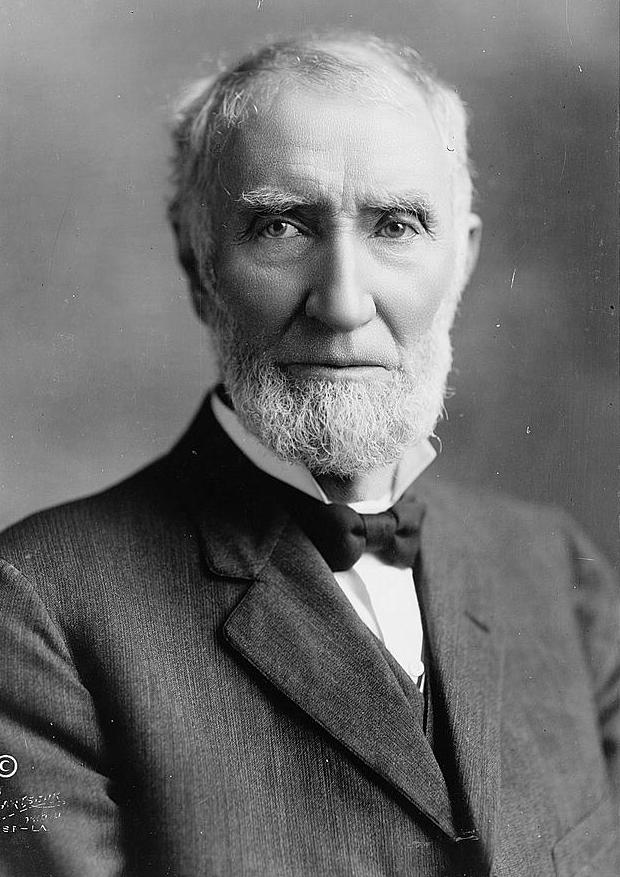“In legislation we all do a lot of swapping tobacco across the lines.”
Referring to a practice during the Civil War, quoted in a tribute to Cannon on his retirement; reported in Respectfully Quoted: A Dictionary of Quotations (1989).
Joseph Gurney Cannon fue un político de Estados Unidos nativo de Illinois y líder del Partido Republicano. Cannon fue Presidente de la Cámara de Representantes de ese país desde 1903 hasta 1911, y los historiadores en general lo consideran el Presidente de la Cámara de más carácter en la historia de Estados Unidos, junto al histórico Henry Clay, y capaz de ejercer tal control de la Cámara de Representantes como para poder controlar el debate. Por su permanencia en el cargo Cannon es el segundo Presidente de la Cámara republicano con mayor permanencia en la historia, su récord fue quebrado por Dennis Hastert, también de Illinois, el 1 de junio, del 2006. Wikipedia

“In legislation we all do a lot of swapping tobacco across the lines.”
Referring to a practice during the Civil War, quoted in a tribute to Cannon on his retirement; reported in Respectfully Quoted: A Dictionary of Quotations (1989).
Quoted in L. White Busby, Uncle Joe Cannon: The Story of a Pioneer American (1937), p. 260
Maxim quoted in a tribute to Cannon on his retirement, reported in The Sun, Baltimore, Maryland (March 4, 1923); Congressional Record (March 4, 1923), vol. 64, p. 5714.
“Nearly all legislation is the result of compromise.”
Maxim quoted in a tribute to Cannon on his retirement, reported in The Sun, Baltimore, Maryland (March 4, 1923); Congressional Record (March 4, 1923), vol. 64, p. 5714.
Reported in The Sun, Baltimore, Maryland (March 4, 1923); Congressional Record (March 4, 1923), vol. 64, p. 5714.
About
“In the last analysis sound judgment will prevail.”
Maxim quoted in a tribute to Cannon on his retirement, The Sun, Baltimore, Maryland (March 4, 1923); Congressional Record (March 4, 1923), vol. 64, p. 5714.
Speech opposing the Pearre Injunction Bill (1906); reported in L. White Busby, Uncle Joe Cannon (1927), p. 278. Cannon noted that Samuel Gompers blacklisted him for opposing the legislation. Cannon expanded this passage in a speech in Lewiston, Maine (September 5, 1906), while successfully campaigning for Representative Charles Littlefield, to counter efforts of Gompers and his labor forces to defeat Littlefield, referring to "any law which will make fish of one and fowl of another," reported in Joseph G. Cannon papers, box 1, Illinois State Historical Library, Springfield, Illinois.
Said in opposition to federal funding of conservation efforts; reported in Blair Bolles, Tyrant from Illinois (1951), p. 119.